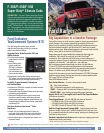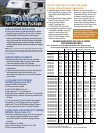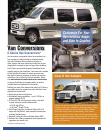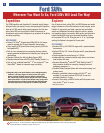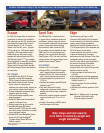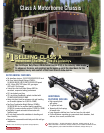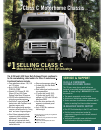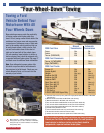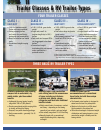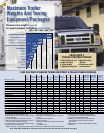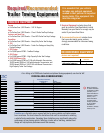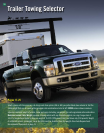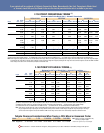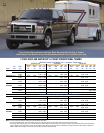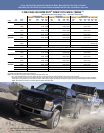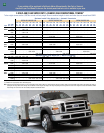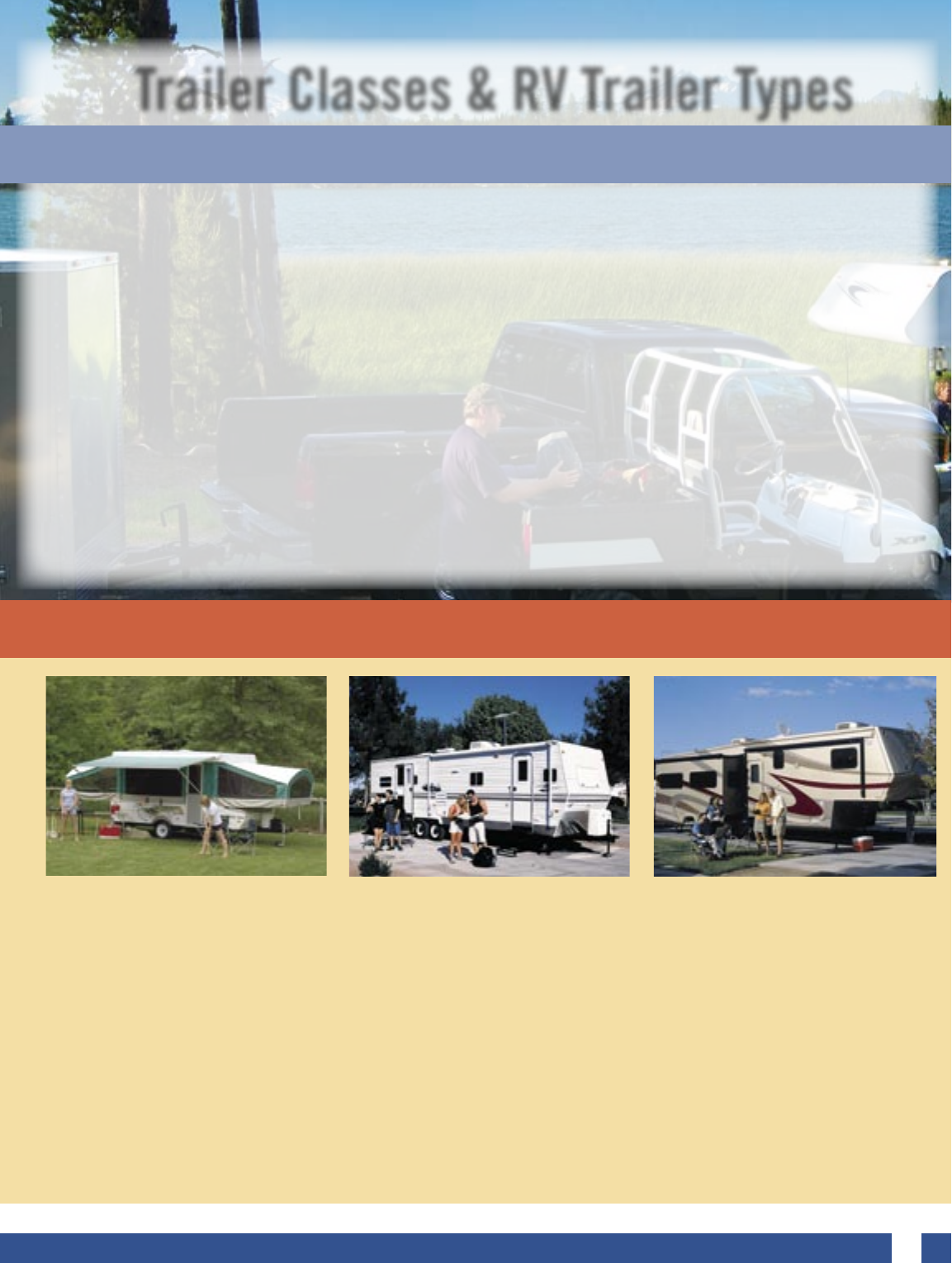
FOUR TRAILER CLASSES
CLASS I –
LIGHT-DUTY
• 2,000-lb. maximum weight
(trailer and cargo combined)
• Folding camping trailers
and trailers for small boats,
motorcycles and snowmobiles
• Many Ford vehicles can handle
easily
• Conventional weight-carrying
hitch
CLASS II –
MEDIUM-DUTY
• 2,001-3,500-lb. gross trailer
weight
• Single-axle, small- to
medium-length (up to 18 ft.)
trailers
• Ford trucks and compact SUVs
can be equipped to tow these
trailers
(1)
• Conventional weight-
distributing hitch not required
unless specified for a
particular vehicle
CLASS III –
HEAVY-DUTY
• 3,501-5,000-lb. gross trailer
weight
• Dual-axle or large single-axle
travel trailers
• Most properly equipped Ford
trucks and SUVs can tow
them
(1)
• Conventional weight-
distributing hitch not required
unless specified for a
particular vehicle
CLASS IV –
EXTRA-HEAVY-DUTY
(2)
• Over 5,000-lb. gross trailer
weight
• Largest travel and fifth-wheel
trailers made for recreation
• Most Ford trucks and SUVs
can be equipped to handle
trailers in this class
(1)
• Most applications require
a conventional weight-
distributing or fifth-wheel
hitch
(1) Refer to page 15 for Required Equipment.
(2) Some industry sources refer to trailers over 10,000 pounds as Class V Trailers. Ford
Super Duty Pickups and Chassis Cabs can be equipped to handle these trailers.
FOLDING CAMPING TRAILER
Trailer Classes & RV Trailer Types
13
Relatively inexpensive units providing
campers with a comfortable, dry,
mobile shelter, plus these added
benefits:
• Lightweight for easy towing (usually
range from 300 to 2,000 pounds)
• Simple conventional weight-carrying hitch
is usually sufficient for towing
• Compact, low-profile traveling package.
• Easily maneuverable – generally 8 to 16
feet long
Generally larger, rigid construction
units offering more of the conveniences
of home, including such features
as kitchen sink, dinette, shower,
refrigerator and flush toilet. Additional
benefits include:
• Widely varied levels of roominess, comfort
and luxury – depending on the towing
capacity of your vehicle, and your budget
• Sizes usually range from 12 to 35 feet long
• Normally towed with a conventional
weight-distributing hitch, depending
on weight
Provide the same types of
accommodations as a conventional
travel trailer, but with these unique
characteristics:
• The forward raised portion is designed to
extend over the box of a pickup truck
• Attaches to the truck via a fifth-wheel
hitch mounted in the pickup bed
• Offers the advantages of improved weight
distribution and towing dynamics, since
some trailer weight is directly over the
towing vehicle
FOLDING CAMPING TRAILER
CONVENTIONAL TRAVEL TRAILER
CONVENTIONAL TRAVEL TRAILER
FIFTH-WHEEL TRAILER
FIFTH-WHEEL TRAILER
THREE BASIC RV TRAILER TYPES



